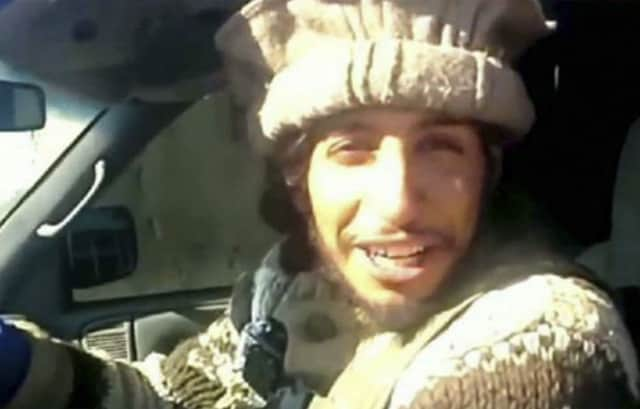Leader: No room for complacency with Paris ringleader dead


Confirmation that the suspected ringleader behind Friday’s terrorist attacks in Paris was killed during a raid by French security forces this week may bring some comfort to those who wanted revenge for the atrocities.
However, it would be wrong to breathe a sigh of relief and start commending the work of those whose job it is to safeguard people from being gunned down as they go about their daily lives.
Advertisement
Hide AdAdvertisement
Hide AdDetails emerging about the Belgian-born jihadist, and the circumstances leading up to his violent death, have raised serious questions about the efficacy of intelligence services across Europe.
Abdelhamid Abaaoud was hardly what you could describe as below the radar. If not the “most wanted” Islamic militant in Europe, he must have been pretty close to the top of the list.
It turns out that the 28-year-old was involved in at least four of six Islamist terrorist plots in France that have been foiled since spring.
It was known that he travelled to Syria last year to fight with Islamic State (IS), but it was not until Monday that French authorities discovered - through information provided by a foreign intelligence service - that he might be back in Europe.
This is despite the fact he had already been linked to two terrorist conspiracies in France this year - an April plot to attack a church in a Paris suburb, and an August attack aboard a high-speed train from Amsterdam to Paris by a gunman who opened fire before being overpowered by other passengers.
He was also behind a terrorist cell in Belgium that was broken up by police in January.
Abaaoud had been jailed in his home country in 2010 for an armed robbery, and was sentenced in absentia to 20 years in prison for his role in January’s plot. But he was able to slip away, his trail finally growing cold in Greece.
The authorities claim there was confusion about his whereabouts prior to his death, because IS claimed he was in Syria. This obvious misinformation should not have been allowed to distract intelligence gatherers from their task.
Advertisement
Hide AdAdvertisement
Hide AdOther questions also remain unanswered - such as how Abaaoud planned and organised the attacks, whether IS is planning additional assaults outside its stronghold in Syria and Iraq, and the identities of at least two other attackers.
Worryingly, as the latest search for suspects continues, ministers have said an attack using “chemical or biological weapons” in France could not be ruled out.
The fact that a foreign intelligence agency was able to pinpoint the flat where the jihadist was hiding out puts the efforts of their European counterparts into serious doubt. It proves it is possible to track his movements – but some agencies appear to be more capable than others.
We may be critical of “spying” operations in the US and Russia but these latest attacks have exposed the inadequacies of current practices.
IS poses one of the biggest threats faced today by Western society and the time has come for increased international co-operation in the battle against terrorism. The intelligence is out there, and countries must now share knowledge and resources for the benefit and safety of all. We have witnessed the dire consequences of a failure to collaborate, and there should be no repeat.